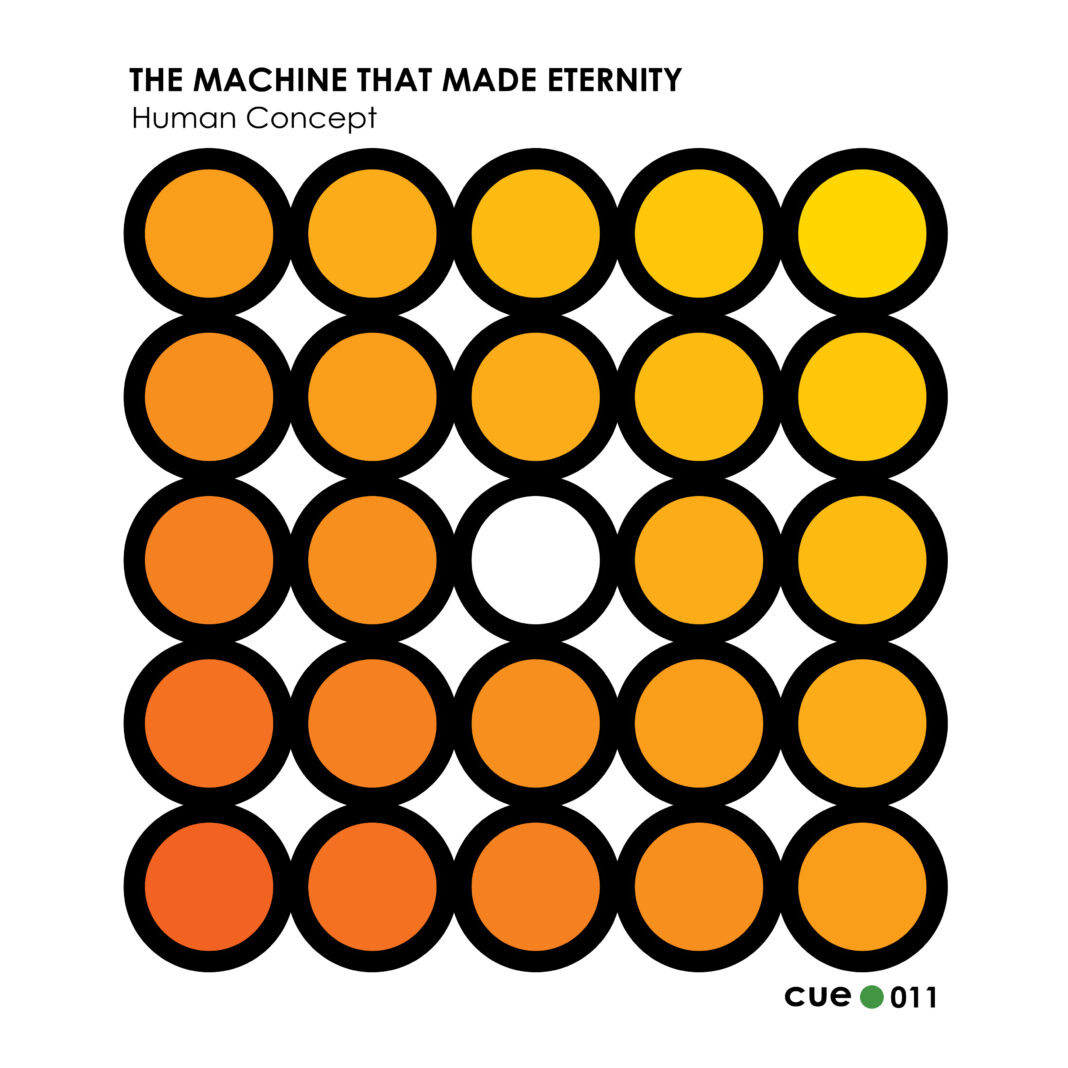Human Concept is the alias of Hertfordshire based producer Pete Crane. The fact that The Machine That Made Eternity exists at all is a small but most definitely not insignificant triumph. During the initial making of the album in the summer of 2020 Crane suffered a downturn in his mental health and the music took on a dark and despondent edge, which was not what Human Concept intended to create and which didn’t resonate with him as his mental health started to improve. The project was almost abandoned but a chance moment towards the end of that year changed things; it changed the direction and feel of the music, the meaning of the music and it revived the project and its prospects.
A lot has been written about mental health and music, though perhaps only recently is it beginning to be taken as seriously as it should be. There has in the past been a tendency to glamourise or romanticise bouts of depression that have led to creative periods for musicians, as well as writers and artists. Think Ian Curtis, Van Gogh, Virginia Woolf. And it is right to acknowledge and explore such phenomena. Less discussed is the idea of improving mental health and what that can do for creativity. The muse doesn’t have to be dark, depressed or dejected. Art isn’t only conjured through suffering.
The fact that The Machine That Made Eternity came to life through such a process and journey can both have a bearing on how you interpret the record, and make absolutely no difference whatsoever. If you didn’t know the backstory it wouldn’t hinder your enjoyment of the music in any way. But perhaps there are clues contained within the track titles. ‘Beyond the Wilderness’, ‘All I Found Were Ruins’, ‘A Reason To Feel’, ‘Through The Fog’, ‘Found Again’. There are metaphors of a journey from difficult days of mental health struggles to brighter lighter days as hope is found again, the fog clears, you remember the reasons to feel and you are able to feel.
Beyond the process of making the album and all that it entailed, the music should not be overlooked. The music itself is a triumph; a daring record with a diverse range of sounds, a shape-shifting atmosphere and an uncanny ability to transport you to another time or place. The really clever aspect of the last point, the sense of being transported, is that even after multiple listens you aren’t sure whether you are travelling back in time or to the future. There are a range of influences at play here that mean certain sections of the record could have been recorded any time from the late 70s, the mid 90s or beyond the present and into the future.
The opening tracks ‘Beyond the Wilderness’ and ‘All I Found Were Ruins’ in particular have futuristic intent yet both nod towards the past. In that sense the album begins on a hauntological footing, in a similar but subtly different way to how you may associate that term through the prism of the Ghost Box back catalogue for example. This is the sci-fi future of the past. The sci-fi worlds created in the 60s and 70s that were supposed to be our future but that never actually came to pass. The Machine That Made Eternity is perhaps best considered as a ghost future, although if eternity has indeed been created, perhaps it does exist after all…
Back to the music. ‘We Drifted, Endlessly’ also has a slightly retro feel. It starts with ethereal deep space drone like synths that are soon accompanied by bleeps and beats from a different era altogether, again melding the past and the future in a way that makes placing the influences difficult. The retro feel eventually reveals itself as a homage to 80s sci-fi arcade games soundtracks, though whether that is intentional or not is questionable, and largely irrelevant. Throughout the album other influences seep in, often in indirect or elusive ways. On title track ‘The Machine That Made Eternity’ there are hints of jungle tucked away in a lush ambient soundscape. There is a beat-driven ambient quality to many of the tracks here, each unique and touching upon different genres and sub-genres – rave, jungle, dark ambient, sci-ambient, even kosmische. Yet taken as a whole it does give the overall impression of a retro sci-fi soundtrack, produced skilfully and tastefully.
‘Through The Fog’ is one of the standout moments on the LP. It physically creates the impression of fog burning away, light breaking through the mist, things becoming clearer, sharper, brighter. And in a nutshell that is this album’s biggest strength; its physicality or rather the music’s power to conjure and build worlds, landscapes or the image of deep space. In that sense there are numerous journeys taking place throughout the record. There is the metaphorical journey from suffering to being able to find positivity and hope even in the most difficult moments and darkest corners of our life. Then there is the visual journey invoked by the ever changing sound palate, the intelligent use of beats to carry the listener to the next place, the next image. Human Concept has created a piece of work with enough clout to tackle big themes, themes like what it is to be human, what mental health means and the question of time and eternity itself. The fact that it does so in a relatively unassuming yet deeply intelligent way is yet another triumph. And that word feels like a fitting way to end the review. The Machine That Made Eternity is a triumph, a brilliant, honest, ambient triumph.
Human Concept – The Machine That Made Eternity is out Friday 17th December on Cue Dot Records.




